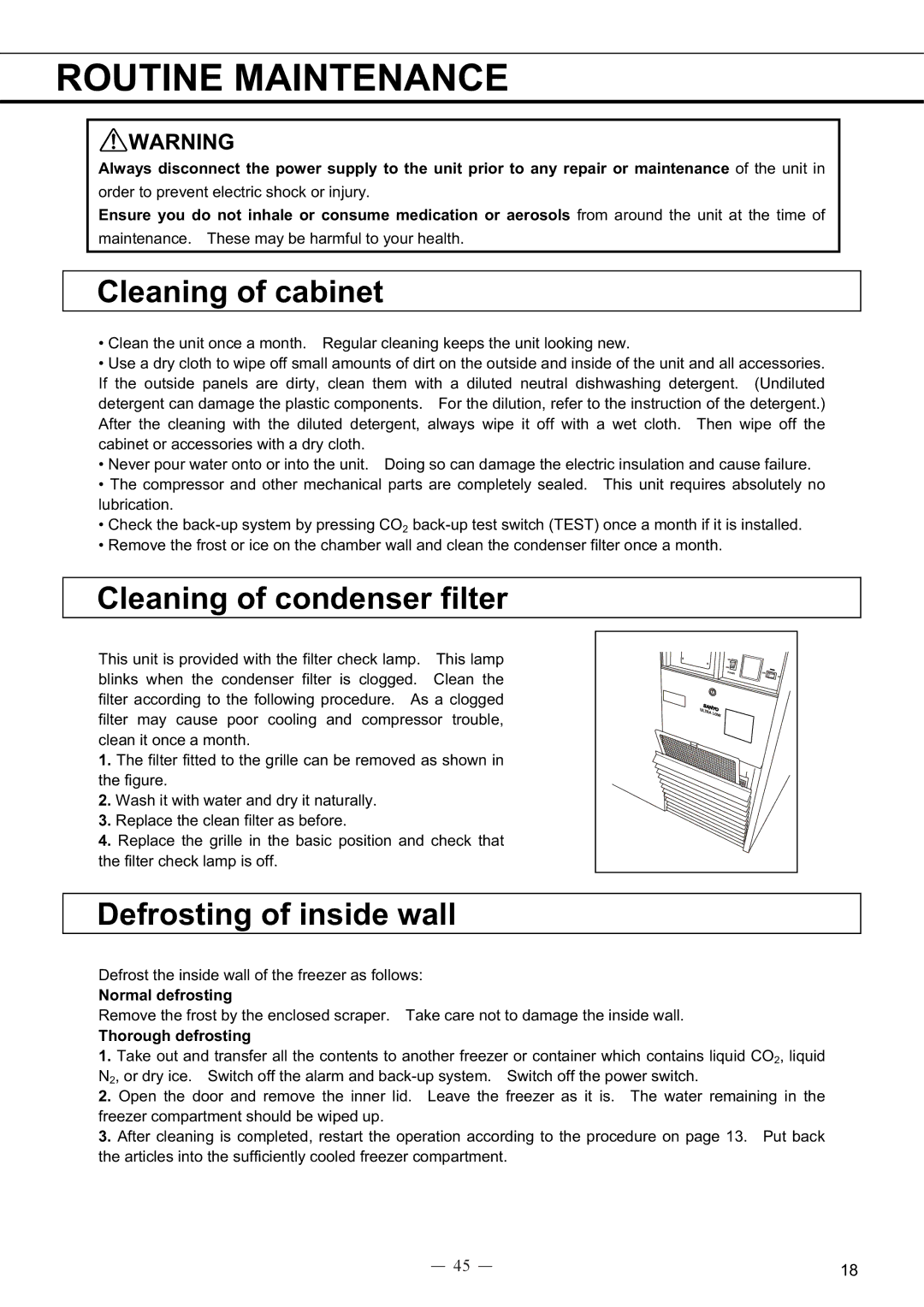MDF-594C specifications
The Sanyo MDF-794C and MDF-594C are advanced laboratory refrigerators designed for the safe storage of biological samples, vaccines, and sensitive materials. These models stand out due to their robust construction, user-friendly features, and innovative technologies that cater to the requirements of research institutions, hospitals, and laboratories.One of the main features of the Sanyo MDF-794C is its large capacity, which makes it suitable for facilities with high storage demands. The refrigerator can accommodate a significant volume of samples while maintaining a stable internal environment. The MDF-594C, while slightly smaller, still offers ample storage space without compromising on performance.
Both models incorporate advanced cooling technologies, including a reliable compressor system that ensures rapid temperature recovery even during door openings. They are capable of maintaining temperatures ranging from -10°C to -30°C, ideal for a variety of laboratory applications. Temperature uniformity is a crucial aspect of sample preservation, and Sanyo’s state-of-the-art design guarantees even distribution of cold air throughout the cabinet.
Energy efficiency is another notable characteristic of the Sanyo MDF-794C and MDF-594C. These models are designed to operate with minimal energy consumption, thereby reducing operational costs and environmental impact. Additionally, they are equipped with a reliable insulation system, which helps maintain consistent temperatures while minimizing energy loss.
User-friendliness is emphasized in the design of both refrigerators. They feature intuitive, programmable digital control panels that allow users to set and monitor temperatures easily. The alarms for temperature deviation and system malfunctions ensure that users are promptly alerted to any issues, enhancing safety and reliability.
Another significant feature is the inclusion of a self-diagnostic system in both models, which continuously monitors the performance of the unit. This capability aids in early detection and troubleshooting, thus maintaining optimal operating conditions.
The Sanyo MDF-794C and MDF-594C also prioritize hygiene and cleanliness, with easy-to-clean interiors that help prevent contamination. Their design allows for easy organization of samples, thus improving workflow within the laboratory.
In conclusion, the Sanyo MDF-794C and MDF-594C are exemplary laboratory refrigerators characterized by their capacity, advanced cooling technologies, energy efficiency, user-friendly controls, and commitment to sample safety. These attributes make them invaluable assets in any laboratory setting, ensuring the integrity and reliability of stored materials.

